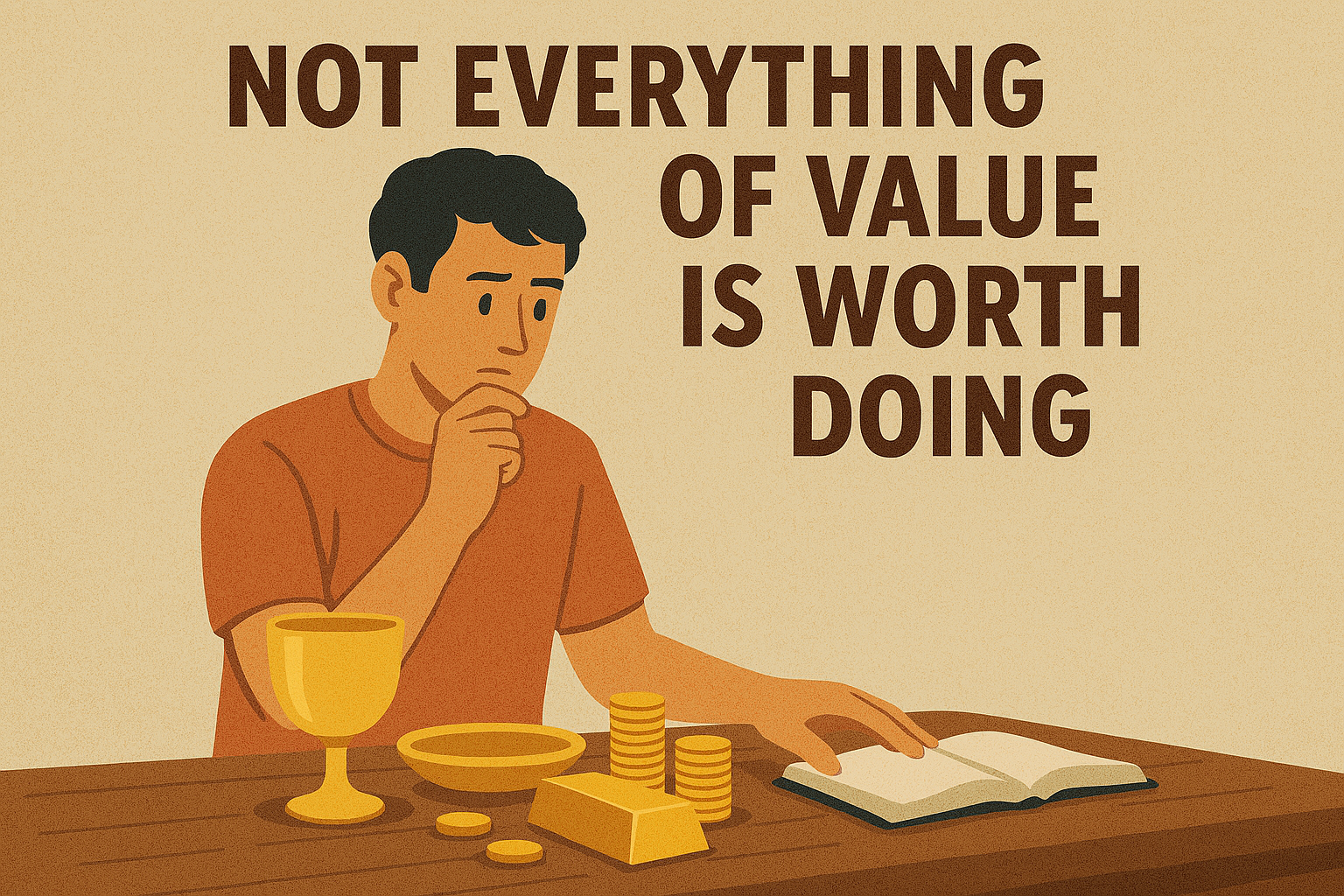The Distinction
Warren Buffet says, “The difference between successful people and really successful people is that really successful people say ‘no’ to almost everything.” They realize every activity carries an opportunity cost. When we say “yes” to one thing, we necessarily say “no” to another.
The issue does not lie in easy choices such as reading the Bible vs. watching The Masked Singer. The most troublesome obstacles to acting on our goals are pursuing well-intentioned but insufficiently valuable suggestions, succumbing to hopeful opportunities, and choosing virtuous but inessential activities.
Distractions Disguised as Opportunities
A business associate mentions a potential customer. Instead of working on one of the ten high-value prospects you pre-qualified through your sales funnel, you honor your colleague’s suggestion and take time away from your best opportunities. There is nothing patently unreasonable about her suggestion; it simply was not sufficiently worthwhile given your preselected options.
You Never Know
We have all made an unexpected, fortuitous connection at a random meeting. Using this example as justification, you could attend every Rotary, trade association, and Toastmasters meeting in your city. For the same reason you do not buy lottery tickets, the mere possibility is not a sufficient decision-making standard.
The proper response is to keep your eyes and ears open at every opportunity you thoughtfully select, not pursue every possible opportunity.
A Jolly Good Fellow
Your community will applaud you for doing the virtuous but less beneficial, which makes them even more tempting.
How can you say no to joining the non-profit board serving underprivileged children when you are well-suited for the task? When you understand the opportunity cost, board service will impair your ability to care for your aging family member. This issue is like the urgent vs. important dichotomy; virtue is the distractor instead of urgency.
One or the Other
It seems simple. We set goals believing they will yield the most significant positive impact. How can we avoid doing anything else?
First, consider each potential activity, not in a vacuum but as a binary choice between competing activities, with one choice always being a goal. What does a non-goal “yes” mean “no” to? If I visit a potential venue for our organization’s event, I choose not to write my book.
Second, you can frame the choice question positively by asking, “Does the potential activity contribute to accomplishing my goals?” If not, refrain from doing it and replace it with something that will. Assisting with site selection is good, but not one of my goals. It is much easier to say no when I will spend the time with a pen in hand.
Finally, you may need to reduce one goal activity in favor of another. Do you need to give up weekly workout #5 of your fitness goal to attend your daughter’s soccer games and meet your family connectivity goal?
But…
You are correct in thinking no one is so properly disciplined to reject everything but the essential. Sometimes, event site selection is crucial for an organization that is important to you. Do not fall into a quagmire in these instances, but do the deed as efficiently as possible.
Instead of visiting every venue in person, evaluate them online and/or visit the one the committee has vetted for the final stamp of approval. You can also restrict your activities to areas where you are “uniquely” qualified. While I could ask some helpful questions and offer an opinion, I do not have any site selection expertise. I can be more helpful suggesting meeting topics or using my contacts to connect with appealing speakers.
_________________________________________________________
To ease the discomfort of neglecting a lower-priority option, remind yourself:
Not everything of value is worth doing.

